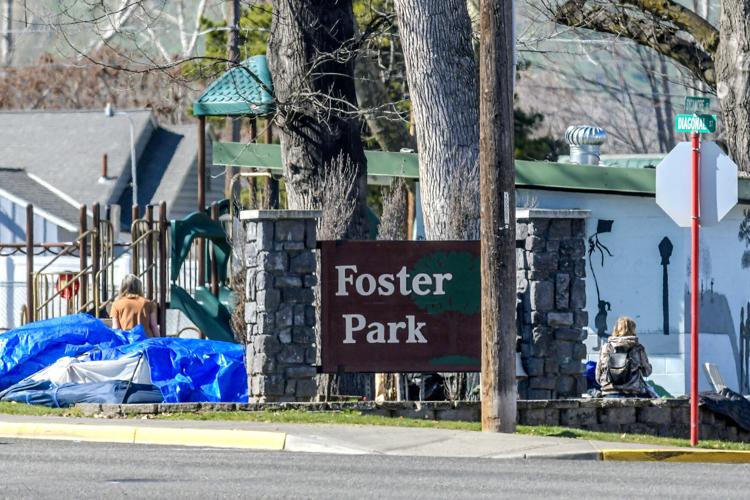
City says ordinance affecting unhoused residents to remain in effect
Listen
(Runtime 1:15)
Read
CLARKSTON — Unhoused residents in Clarkston are waiting to hear from the city, a week after the attorney representing the group requested the city modify its ordinance limiting where, and for how long, homeless people can camp.
On March 7, the Northwest Justice Project sent a letter to Clarkston asking for modification or temporary suspension of an ordinance that it says may violate constitutional and disability rights of unhoused residents.
In Washington, unhoused people cannot be punished for sleeping on public property. In the letter, Northwest Justice Project attorney John Wolff wrote the ordinance, which limits camping to Foster Park from 9 p.m. to 7 a.m., unreasonably restricts when homeless people can shelter.
Those limitations are forcing people to leave town, Wolff said.
“I have already experienced that with a number of people who I’ve spoken with, and I have not been able to contact again. I have no idea where they are,” Wolff said. “Nobody else does, either.”
The letter sent to the city by NJP cited potential constitutional and disability rights violations and requested the city respond by March 11 or temporarily suspend the ordinance until the city could finish its own analysis.
On Thursday, city attorney Suzanne “Suni” Hanson wrote in an email that the ordinance would remain in effect while the city conducts its own legal analysis.
Hanson said she did not have a timeline for when that analysis would be complete.
“We trust that our law enforcement will continue to exercise appropriate discretion in the enforcement of the city’s code in a way that is thoughtful and mindful of the individuals with whom they come into contact,” Hanson wrote.
On Monday, seven people were issued citations for camping at Foster Park past curfew.
One of those residents, John “Cowboy” Parke, said he had collapsed his tent without packing it up because he was too tired. Parke said he had believed that fell in line with the guidelines he had gotten, but he still received a citation.
Police Chief Joel Hastings declined to speak to any specific cases but said officers were prioritizing educating residents prior to issuing citations.
“The goal is to gain compliance prior to taking any enforcement action,” Hastings said. “So, that’s what we’ve been doing.”
Hastings said no other citations were issued that week. Some local volunteers have been showing up to help wake unhoused residents and help clean up in the morning, he said.
NJP also contends unhoused residents have a right to choose where they live under the Washington constitution, and the ordinance violates that right by effectively making living within city limits unfeasible.
“If there’s a right to travel under the Washington constitution, which the Washington Supreme Court says there is,” Wolff said. “Then that necessarily must also include a right not to travel. The right to just choose where to reside.”
Wolff said of the up to 20 unhoused residents he spoke with, all had connections to the city, having either been born there, having family who resided in Clarkston or having lived there in the past. All considered themselves Clarkston residents, Wolff said.
“The longer the ordinance is in effect, the more people that will leave the city because they can’t exist in the city. I have already experienced that with a number of people who I’ve spoken with and I have not been able to contact [them] again. I have no idea where they are,” Wolff said. “Nobody else does, either.”
Moreover, Wolff said, the ordinance may have a disparate impact on unhoused residents with disabilities.
“You are making it really difficult for them to access services,” Wolff said. “Crucial medical services, crucial legal services, crucial, crucial social work.”
In the letter, Wolff requested the city designate an office or official to receive and approve reasonable modification requests for people with disabilities.
The letter also asks for modifications to the ordinance including: Allowing camping for up to two weeks for those with disabilities; designating a second location where camping is allowed; allowing camps a plot size of 14-by-14 square feet, as opposed to the current allowance of 8-by-8 feet; expanding the type of belongings individuals may accumulate; and providing utilities and sanitation, including electricity to charge devices, running water, trash removal and sewer service in designated camp areas.
Wolff said he hopes the city will be willing to modify its ordinance. If the city doesn’t, the group said it may pursue legal action.
“If the city’s not going to do that, then we just have to press forward,” Wolff said. “I can’t really in good conscience tell my clients, ‘Keep waiting.’”















